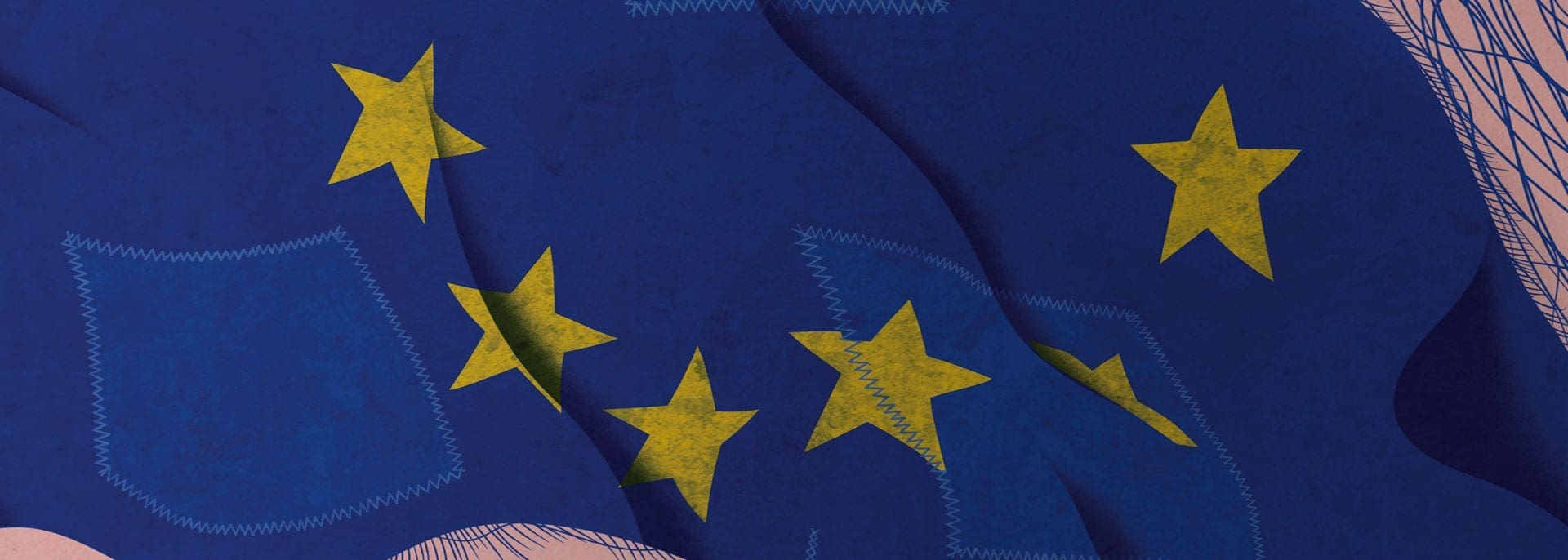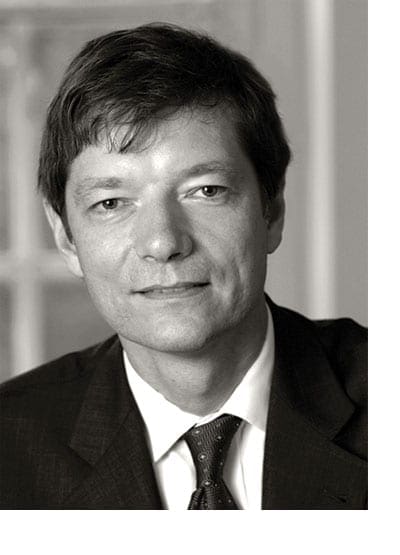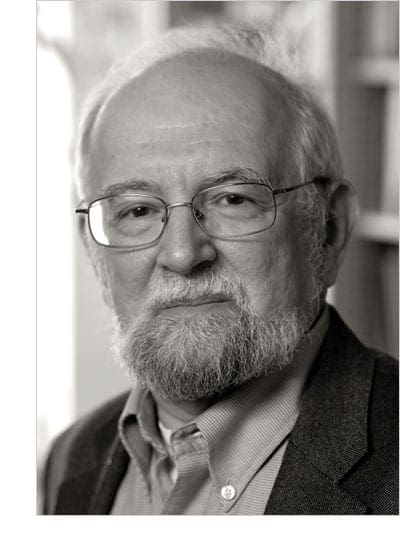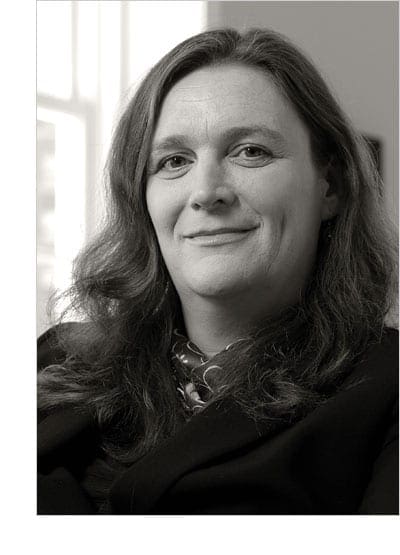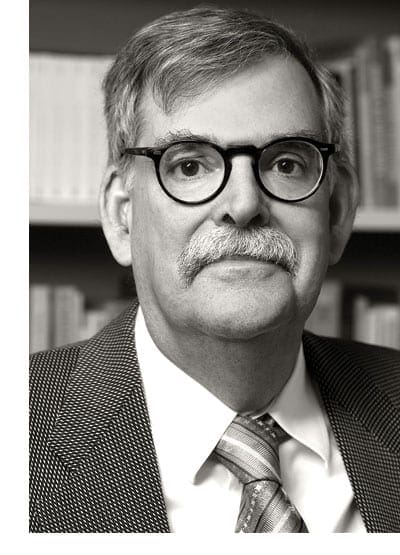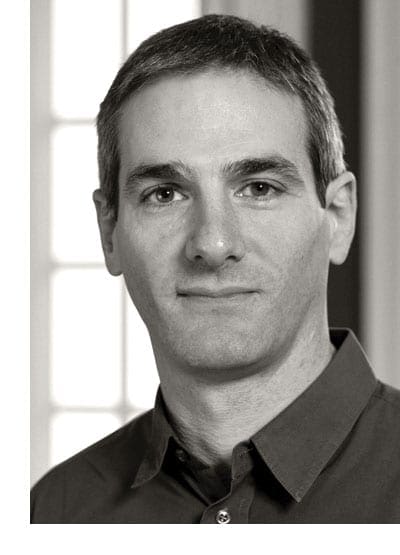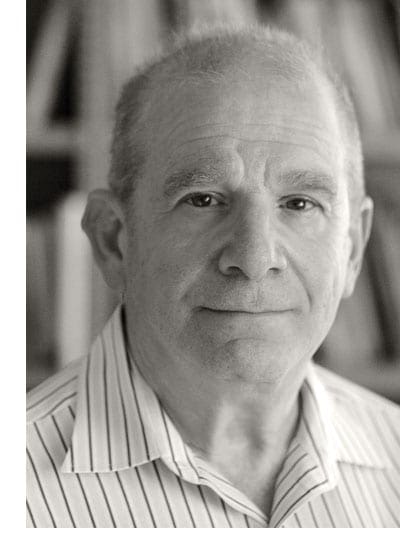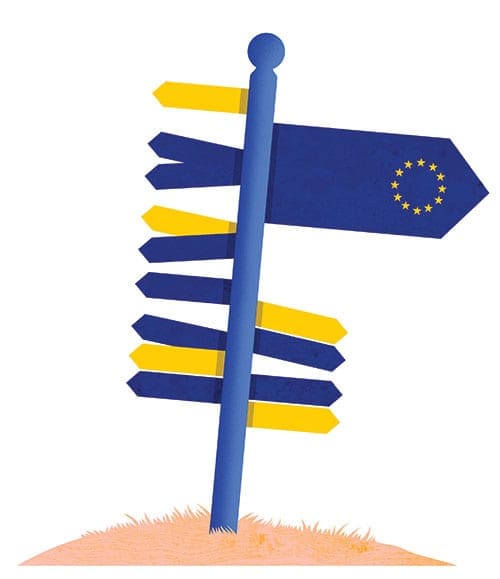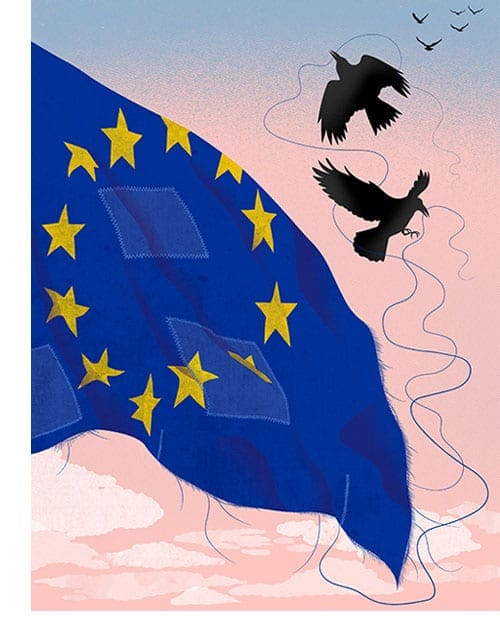
The European Union, officially forged in 1993, was seen as an important part of this move to peace and democracy, as countries that once looked at one another with suspicion and mistrust lowered their border barriers, adopted a common currency, and strode into the future bound together by their common belief in democracy.
What could go wrong?
From the looks of Europe today, plenty. Whether it’s Brexit or the refugee crisis, France’s yellow vest protests or the rise of right-wing (and left-wing) populism, the American president questioning the United States’ commitment to NATO or financial instability threatening the euro, there are enough problems around that many are now wondering about the future of the European experiment, perhaps even of peace.
Among faculty members at the Krieger School in the departments of History, Political Science, and Economics, there is clearly concern, but not panic, about the prospects for Europe. A look at some of the issues:
An “Achilles’ Heel”
While the economic story is not as dramatic as rock-throwing protestors or hate-spewing xenophobes, economic challenges could pose the biggest threat to the European Union and, thus, to the Europe we have come to know over the last several decades.
“It’s a little bit technical and maybe overlooked by the wider public, but the lack of a common bank deposit insurance for the euro is the Achilles’ heel of the EU,” says Olivier Jeanne, professor in the Department of Economics. “This is the main existential issue facing European economic integration.”
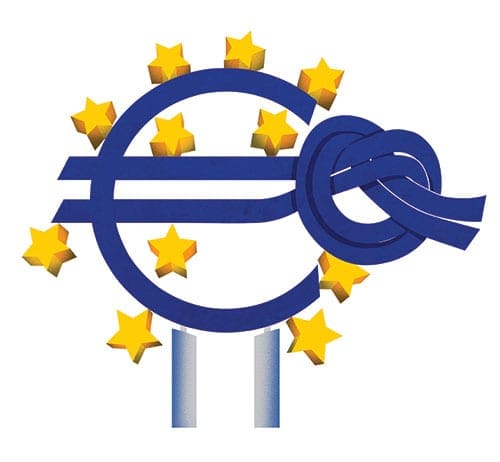
“The euro is not backed by a single deposit insurance system,” he says. “Each national banking system is backed by its own government.”
This issue first reared its ugly head a decade ago in the crisis that brought Greece to its economic knees. “When people grew scared that the Greek government could not back the euro deposits in its own banks, they transferred their deposits to countries such as Germany,” Jeanne says.
Euros slowly but surely moved out of the country as confidence in the Greek banking system waned. In the summer of 2015, the situation reached crisis proportions. “It was a bank run that forced the Greek government to essentially close their banking system, which was reopened only with support from the European Central Bank, and other euro countries.”
That support came with strict limits on Greece’s spending, externally imposed tough austerity plans.
Now the same could happen in Italy, but on a whole different scale.
If that happens, the Greek solution might not work because, Jeanne says, “It is not clear that, given the current government in Italy, it would consent to the kinds of conditions that the Germans and the European Central Bank would want to impose.”
Greece did not have the leverage to resist because it is a small economy. “To the Germans, if Greece went down the drain, they figured ‘it won’t hurt us.’ Greece is very small, it is easy to contain the contagion,” Jeanne says. “But a crisis in Italy is going to hurt the rest of Europe. I can see how it could degenerate into a game of chicken in which Italy and Germany can’t agree on a compromise.”
And if not?
“In the worst-case scenario, there is a bank run in Italy, the Italian government does not cave in, so Germans don’t come to the rescue, then Italian banks close,” Jeanne says. “That crisis spills over to European banks, threatening the euro, which would mean it would then spill over into U.S. banks.
“It would be a fast-moving crisis that could be something worse than the financial crisis in 2008. That is the worst-case scenario, but it is perfectly well within the realm of possibility. It is difficult to say how likely it is. It’s like trying to predict a heart attack when you know you are susceptible to one—you really don’t control if and when it is going to happen.”
There is a solution for this, Jeanne says: a single euro area deposit insurance in which all the member nations back the euro. He says such an arrangement is being debated but is not likely to be put in place any time soon.
It’s a little bit technical and maybe overlooked by the wider public, but the lack of a common bank deposit insurance for the euro is the Achilles’ heel of the EU.”
OLIVIER JEANNE
The Germans resisted putting their taxpayers’ money at risk supporting banks in foreign countries. The view in Germany, the Netherlands, and a few other countries was that the north of Europe was serious about economic policy and the south was not, so the north should not provide any support to the southern countries. Now that is the main source of fragility in the European economic system.”
Urban vs. Rural
There are other threats to the European economy on the horizon. As of this writing, no one knows what form Brexit will take, and thus there is no predicting what effect it will have on the economies of Europe and Britain. Throughout Europe, you see the same urban/rural split that was so evident in the U.S. election of 2016: Urban European voters perceive that there are benefits in the EU just as American city dwellers see benefits in globalism, while the opposite is true in rural areas. This split is behind Brexit, the yellow vest movement in France, and other populist political movements.
Richard Katz, professor in the Department of Political Science, thinks economic chickens released long ago are coming home to roost.
You can’t keep growing expenditures without having income to match it.”
RICHARD KATZ
“In one sense, the problem arose in the immediate postwar period,” he says. “You can even blame it partially on the Marshall Plan. Europe had a quite rapid economic recovery, the kind of recovery that could not be sustained for the long haul. But politically there were short-term advantages to pretending that it could.
“So a lot of policies were put into place that couldn’t really be sustained, like the success of the welfare state,” he says. “It’s produced a much larger percentage of the population dependent on it than was planned, whether it’s students still in school and thus not working, or older people who with good health care systems have not died and are collecting pensions.
“At some point, you can’t keep growing expenditures without having income to match it.”
Katz notes that what Germany and other northern European countries are saying to Italy, Greece, and others in the south is, “We’ve figured out how to pay for our system, you figure out how to pay for yours.” And what Italy, at least, might end up saying back is, “Help us out or you’re going to go down with us.”
Identity Crises
Adria Lawrence often shows her students a map of Europe from a thousand years ago to make the point that the current map could easily look very different.
“We tend to think of the nations that emerged as inevitable, but they are not,” says Lawrence, the Aronson Associate Professor of International Studies and Political Science. “It is actually very hard to look at that old map and see the current Europe coalescing as it did. It was a long and bloody process of state formation.
“You go back even to the early 1800s and you can see no reason that France looks like it does today, that it would congeal as a nation. There were different languages, local cultures, no uniform sense that this geographical unit belongs together,” Lawrence says. “It took multiple wars with Germany, and a lot of work on the part of the state and nation, to create what, again, now seems inevitable to us.”
The question now is how will that European map keep evolving. Can people still feel they are French, German, Italian, Spanish, Dutch, Swedish, etc.—and also be European?
Katz quotes 19th-century Italian politician Massimo d’Azeglio speaking about the unification of his country: “We have made Italy. Now we have to make Italians.”
“One of the things the whole program of European unity did was try to develop a sense of European identity,” he says. “The Italians have been working on this for 150 years and still have not completely succeeded, so it was unrealistic to think that the EU could do it in 10 years.”
There are many threats to that European identity that may shape the future of Europe. Some, such as Brexit, were driven by what many saw as overreach by the EU into the internal affairs of its members.
“The EU is in some respects even more centralized than the United States or Canada,” Katz says. “In effect, they [have] a lot of centralization without a political system that supports it.”
This contributed to the aforementioned rural/urban split—city dwellers seeing benefits from this deregulation, rural residents seeing it as a threat. That perception can be exploited by those touting nationalist ideas—the rural residents become the “real” French or Germans or Hungarians, while the urban dwellers are somehow tainted by their connection to the rest of the continent and world.
“While the EU has been very successful if you look only in aggregate terms, if you look at individuals, there are some winners and some losers,” Katz says. “The EU becomes a good whipping boy for domestic politicians who can say, ‘The commission made me do it,’ all exacerbated by the financial crisis at the end of the last decade and the immigration problems now. You are getting to the situation where the EU doesn’t really have a strong base of support among the European public.”
Just as wars with each other helped to unify France and Germany as nations, so the Soviet threat during the Cold War tended to bind the countries of Western Europe together. With the loss of that threat, and the expansion of the EU into Eastern Europe, where traditions were shaped in part by generations of Soviet domination, that identity weakened and divisions emerged.
The addition of millions of immigrants from Syria and other war-torn countries spurred the rise of a xenophobic style of nationalism that is now seen as a major threat to European unity.
But Lawrence says that nationalism should not be confused with xenophobia.
Nationalism is a very flexible ideology that can be harnessed to help reach any number of goals.”
ADRIA LAWRENCE
“Nationalism is a very flexible ideology that can be harnessed to help reach any number of goals. For example, nationalism was applauded when used by Churchill in Britain during World War II and by Hungarians resisting the Soviets in 1956 and Poles doing the same in the 1980s.”
The question is how will nationalism be used in the coming years and decades in Europe—for xenophobic appeals or to rally citizens around the ideals of tolerance and liberal democracy.
The Dark Side of Nationalism
History Professor Peter Jelavich says a growing movement toward what he calls “illiberal democracy” shows the dark side of nationalist appeals.
“You have elections, people are free to vote, but once these populist parties come to power they take away the independence of the press and judiciary,” he says. “People can only access the ideas and platform of the party in power, so in subsequent elections, the opposition has no chance. And the judiciary is stripped of its ability to be a check.” By contrast, he notes, liberal democracy is based on the freedom of the press, an independent judiciary, and the separation of powers.
Once these populist parties come to power they take away the independence of the press and judiciary.”
PETER JELAVICH
The most salient examples are Viktor Orbán in Hungary and the current government in Poland, but similar parties have seen electoral gains throughout Europe, becoming part of governing coalitions in some places. Anti-Muslim sentiment around the immigrant issue is a common message, but anti-Semitic tropes have appeared as well.
“This is dangerous for minorities in these countries,” Jelavich says. “Their appeal is based on virulent racist nationalism. They stay in power by saying there are enemies within and without.”
Nicolas Jabko, an associate professor of political science, agrees that there is a danger. “At the end of World War II, there was a rejection of fascism, and communism was the enemy,” he says, explaining that this helped drive everyone toward the liberal democracy ideal. “Now the fascist taboo has been lifted a bit, and with very few people still living who have memories of the catastrophes of fascism and Nazism, people are much more inclined to consider the far right than they were right after World War II.”
While I am worried about what will happen to some of its member states, I think there is no existential threat to the EU right now.”
NICHOLAS JABKO
But he still thinks the EU will muddle through. “Very interestingly, the countries that have the most right-wing populist governments, Hungary and Poland, don’t want to get out [of the EU],” Jabko says. “Brexit has cured a lot of Euro-skeptics. The our-country-must-leave position is much less prevalent in political discourse than was the case 10 years ago.
“So while I am worried what will happen to some of its member states, I think there is no existential threat to the EU right now.”
Instead, Jabko sees a future that could be similar to the way the United States developed in the past. “America’s core principles, the lofty values, remained in place despite the presence of slavery and then segregation in the South. They co-existed very awkwardly for decades,” Jabko says. “That will be the case in the EU. [Even] if some member states make a mockery of its liberal democratic principles, the union will remain intact.”
NATO’s Stabilizing Influence
Soon after the end of World War II, the emergence of the Soviet Union as a threat to Western Europe helped make allies out of two traditional enemies, France and Germany, as well as other European countries that had often fought one another.
That was formalized by the founding of NATO in 1949. The United States was the big brother in NATO by design as a militarized Europe had led to bad outcomes for the previous part of the 20th century.
“NATO has been very good for Europe and for the United States,” says Steven David, professor of political science who specializes in security issues. “It was a bulwark against Soviet expansion that has provided probably the longest period of peace in Europe’s history.”
But now the big brother in the relationship is talking about breaking up the family. That would be President Trump’s questioning of NATO’s cost to the United States and even reportedly raising the possibility of a U.S. withdrawal or at least not coming to the aid of a minor country on Europe’s periphery.
When American influence is not present, all kinds of bad things happen. That’s not to say we have to be everywhere all the time, but when we turn our back, the outcome is often not good.”
STEVEN DAVID
“NATO is not really something that has been a contentious issue since it was founded,” David says. “Yes, the European countries should pay more for their defense, but that’s a marginal concern that should not be elevated to an existential issue. The last time America withdrew from Europe was after World War I when the U.S. adopted an isolationist posture. That did not work out so well.”
David notes that there is some historical irony in the fact that Germany, of all countries, is now seen as the adult in the room of the trans-Atlantic alliance. “Many have pointed out that NATO was formed to keep Russia out, the Americans in, and the Germans down,” he says. “Germany needed NATO and the European community to help prevent the resumption of totalitarianism. Embedding itself in a larger milieu was a way to avoid the hyper-nationalism that led to the Nazis and World War II.”
It worked. Germany has probably the most stable democracy in Europe. Though there has been a rise in votes for a right-wing populist party, the Alternative für Deutschland (AfD), in part as a response to Angela Merkel’s welcoming a million immigrants from the Middle East, Jelavich does not see that party becoming part of a governing coalition as it has in some other European countries.
“While I don’t like seeing the AfD, which is implicitly anti-Semitic and racist, polling at even 15 percent, I think other parties will refrain from forming a coalition with it,” Jelavich says. “That means Germany won’t go the way of Austria where there is such a coalition, in part because Germany has confronted its Nazi past much better.”
Even as Merkel deals with populists both at home and abroad, David says it is the rise of isolationism in the U.S. that most concerns him.
“When American influence is not present, all kinds of bad things happen,” David says. “That’s not to say we have to be everywhere all the time, but when we turn our back, the outcome is often not good.”
While almost no one foresees a return to the kind of all-out warfare that wracked the continent in the past, the fraying of the EU—either economically or politically—and the Trump administration’s reluctance to commit to NATO could crack open the door for a move by Putin’s Russia.
Noting that Russia already has gone to war against non-NATO Ukraine—taking over Crimea—David says Putin could use similar tactics against Baltic countries that are in NATO. “It wouldn’t be a World War II scenario with tanks rolling across the borders,” he says. “It would be more like Crimea, claims that a Russian ethnic population is being discriminated against and called for help from Russia.”
If that happens, the question then is what will the NATO countries do? After all, this is the same tactic Hitler’s Germany used in 1938 when it annexed Czechoslovakia’s Sudetenland, home to many ethnic Germans.
“Then they just grabbed the whole country. The world watched and did nothing,” David says. “Instead of looking at the last 75 years in Europe, maybe we should look back 700 years. Then the prospect of Europe degenerating back into war seems much more compelling.”
All the more reason, he says, for the United States to remain involved in Europe, supporting NATO, the EU, and liberal democracy.

